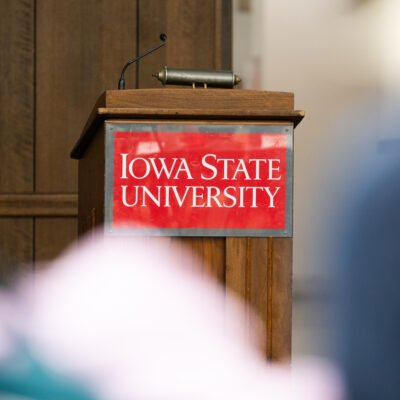Part three of the six-part Principles of Community (PC) puzzle is the richness of diversity. This is defined on the university website as recognizing and cherishing “the richness of diversity in our university experience. Furthermore, we strive to increase the diversity of ideas, cultures and experiences throughout the university community.” Diversity is a hot-button issue in today’s world, so further discussion about diversity is essential.
But what is diversity, exactly? During the spring 2024 edition of the Engineering College’s Donuts with the Dean event April 17, the topics of diversity and success came up. Dr. Connie Hargrave, Associate Dean for Engagement and Excellence. She talked about her definition of diversity being that we are all different, recognizing that diversity exists in every individual. No two people are exactly the same, though there are similarities and many differences among us. Do you know any identical twins? How identical are they, passed looking similar and having the same parents? If you have not had the pleasure of knowing identical twins, they are as different as night and day. In Dr. Monic Benhken’s class on Deviant and Criminal Behavior, we covered how societies will always find a reason to divide themselves. In the US, race is a top choice for dividing lines. In other nations with little racial diversity, they will select another factor to divide on, such as wealth and poverty.
In my case, the most successful teams I was a part of were also the most diverse, in both life and work experience. Next time the word diversity comes up, pause and actually consider the value in diversity and not the political definition of diversity by division.
Dean Hargrave also discussed the topic of success and she made remarks about ISU being an access institution, talking about how the university is responsible for helping students succeed once they arrive on campus. During this semester’s edition of the Donuts with the Deans event on October 8th, Dr. W. Samuel Easterling, James L. and Katherine S. Melsa, Dean of Engineering, also spoke about ensuring student success. He said, “We view it as our job to help you succeed once you walk in the door.”
This is one of the main differences that sets ISU apart from other universities and most organizations. Student success means the university’s and community’s success. Student failure means both the university’s and community’s failure. Some organizations, including some universities, have a focus on division, which is in direct opposition to our PC puzzle.
Just one of the highlights of Cyclone Nation’s success in appreciating diversity sits on campus today. There is a building and statue of George Washington Carver on the west side of campus. The statue holds a peanut because Carter found many uses for this crop, excluding peanut butter. In 1891, Iowa State Agricultural College accepted George Washington Carver, who earned a bachelor’s degree three years later. Carter also completed his master’s degree in 1896. Carter was previously denied admission to another college based solely on his race. After graduation, he accepted a teaching and research job at Tuskegee Institute. Through years of research, Carter had many accomplishments, some of which involved crop rotations and alternate usage of crops, which had a significant improvement for all farmers and the economy. Carter’s race did not have a significant effect on his ability to be successful in the classroom or lab. His unique life experience gave him the ability to see these needs in society. He was successful because of his diverse perspective, not in spite of it.
In other states to the south, segregation was still a common practice in higher education, a half century later, just before the Brown vs Board of Education of Topeka (1954) case. In 1948-50, there were several cases making their way through the courts in relation to student attendance at state universities. One of these cases involved a state law that mandated segregation in education. As we saw in the freedom from discrimination article, everyone involved could be against the established policies, practices and procedures (PPP) of the dominant rule making culture but are required to enforce these PPP, sometimes at great personal cost. The personal viewpoints and opinions of the university administration and student body might not have been considered in these cases.
Diverse backgrounds make stronger teams who develop more complete products and results. The diverse teams are able to ask more of the WHY questions because they all see the issue from different perspectives. This valuing the individual and not their circumstances is core to our history as an access institution. Iowa State is here to give opportunities to those who want them no matter where they come from.




